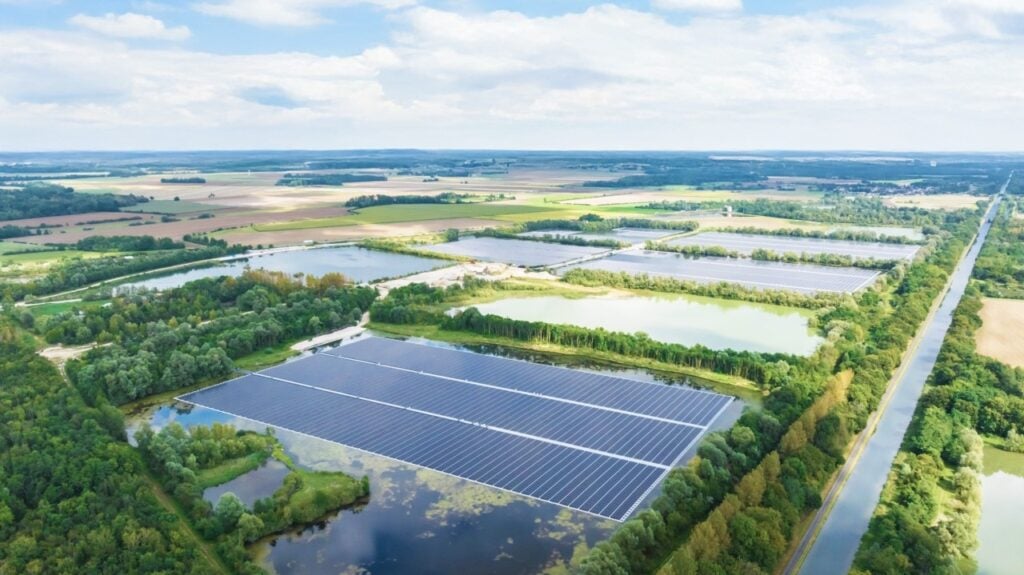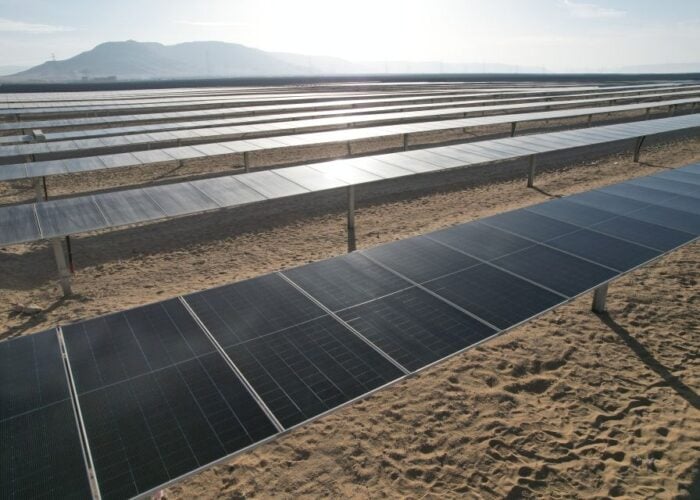
German-based energy service provider Q Energy and independent power producer (IPP) Velto Renewables have inaugurated Europe’s largest floating solar (FPV) power plant, according to the companies, in France.
Located in the municipality of Perthes in the Haute-Marne region of France, the Les Ilots Blandin solar plant spans 127 hectares and features over 135,000 PV modules, delivering an installed capacity of 74.3MWp. As part of the final setup, a 2MW ground-mounted solar system was added to the site to enhance both the project’s total energy output and its economic efficiency.
Try Premium for just $1
- Full premium access for the first month at only $1
- Converts to an annual rate after 30 days unless cancelled
- Cancel anytime during the trial period
Premium Benefits
- Expert industry analysis and interviews
- Digital access to PV Tech Power journal
- Exclusive event discounts
Or get the full Premium subscription right away
Or continue reading this article for free
Corentin Sivy, development director and deputy managing director of Q Energy France, said the project’s success was largely due to the company’s strong relationships with local officials, government bodies, and economic stakeholders, and a deep understanding of local dynamics.
Initiated by Q Energy in 2019, the project entered construction in September 2023 following over five years of planning and achieved full commissioning in June 2025. The floating structures and inverters were handled by FPV solutions provider Ciel & Terre. Meanwhile, Perpetum was responsible for electrical procurement and construction of the ground-mounted array and Solutions30 oversaw cabling, grid connection, and overall commissioning.
In September 2024, Q Energy secured €50.4 million (US$56 million) in financial debt for the floating solar PV project. The financial close was arranged by French banking institutions Crédit Agricole Transitions & Energies and Bpifrance.
Floating solar is an emerging technology across Europe, with significant potential especially in regions where land availability is limited. While FPV plants offer unique advantages, they also face economic challenges due to higher construction and maintenance costs compared to traditional ground-mounted systems.






